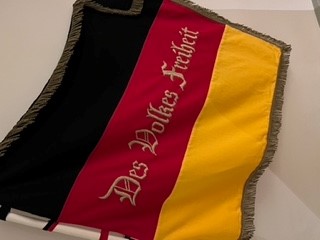
Novak, Nicolas M.: Demokratie in Theorie, Praxis und Erinnerung
- Ansprechperson:
Nicolas M. Novak, M.A.
Diese Masterarbeit (Januar 2024) ist ein Beitrag zur Demokratiegeschichte, indem sie Theorie und Praxis der Demokratie nebeneinander stellt, um ihre Entwicklungslinien, Brüche und Kontinuitäten herauszuarbeiten. Dies veranschaulicht erstens, dass Demokratie sowohl in der Theorie als auch in der Praxis ein fortwährender Prozess ist. Damit ist gemeint, dass sich die Vorstellungen davon, was eine demokratische Ordnung ausmacht sowohl räumlich als auch zeitlich verändern. Daher muss gesagt werden: Die eine Demokratie gibt es nicht. Vielmehr gibt es viele Arten von Demokratie. Zweitens wird gezeigt, wie sich die demokratietheoretische Vielfalt, die ihre Wurzeln in der europäischen Ideengeschichte hat, auf die praktische Umsetzung des Demokratieprinzips ausgewirkt und sich in diesem niedergeschlagen hat. Aufgrund dessen ist die vorliegende Arbeit in zwei Themenabschnitte gegliedert. In einem ersten Schritt wird, ausgehend von der Versammlungsdemokratie des antiken Athen die Entwicklung der Demokratieidee über die Denker der Aufklarung bis zur Entstehung der liberalen und repräsentativen Demokratie der Moderne nachgezeichnet. Im zweiten Abschnitt wird die demokratische Entwicklung in Deutschland aus verfassungsgeschichtlicher Perspektive betrachtet, wobei die Weimarer Reichsverfassung von 1919 als Grundlage der ersten deutschen Demokratie im Mittelpunkt der Untersuchung steht. Abstract - Link zum Download
